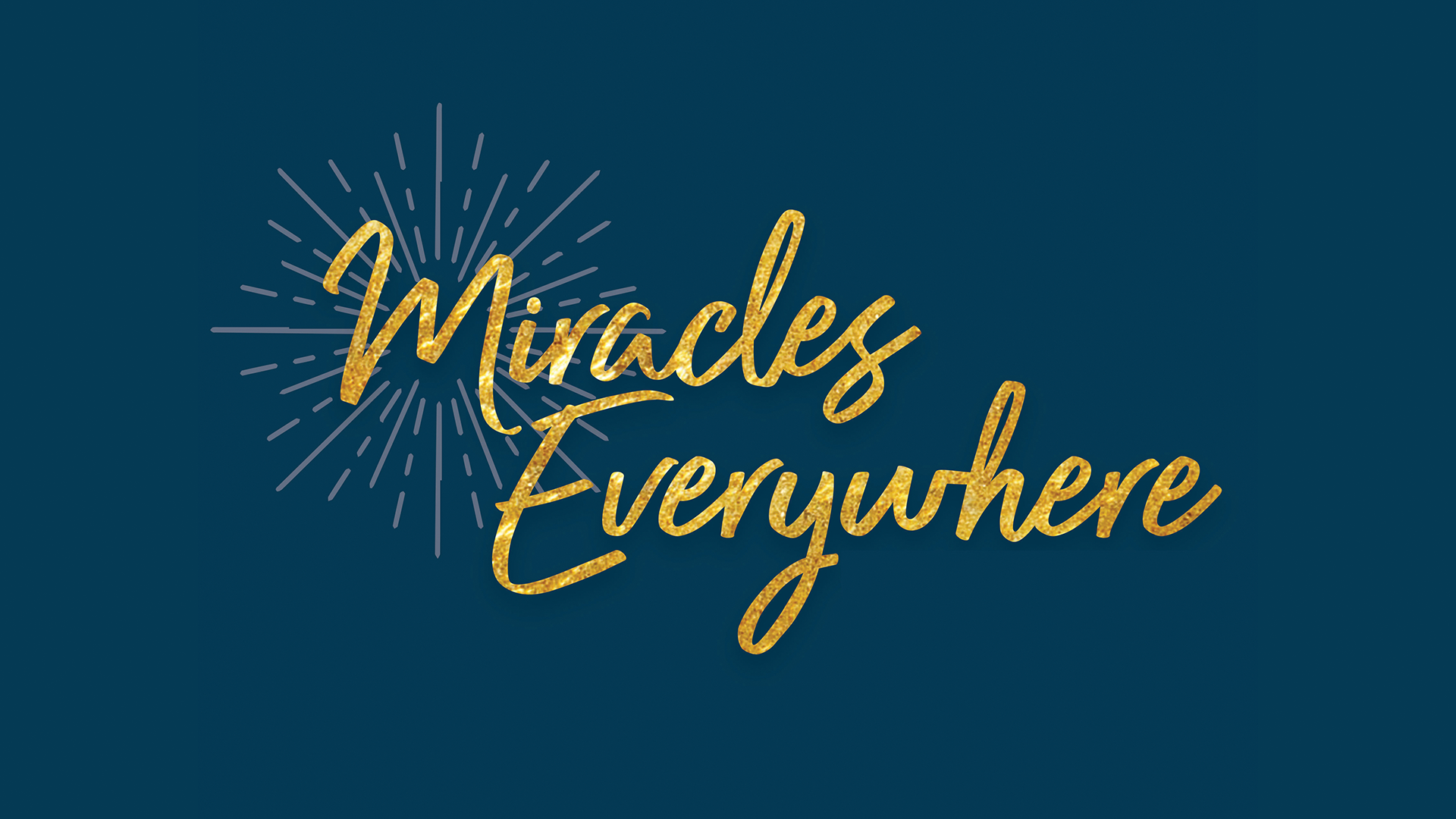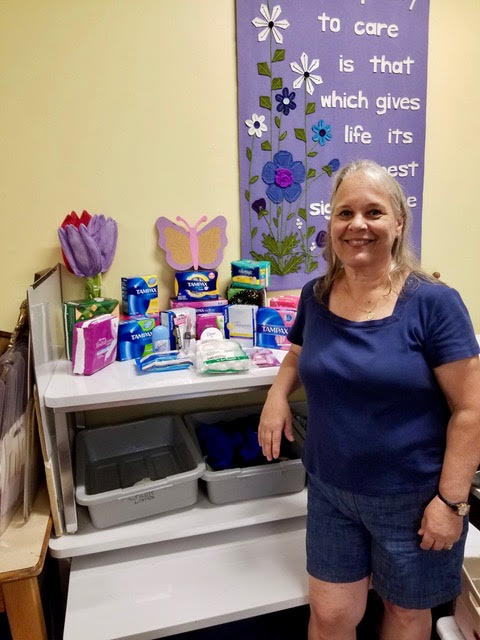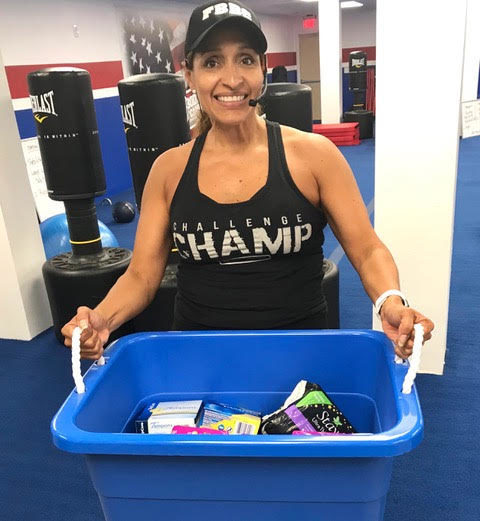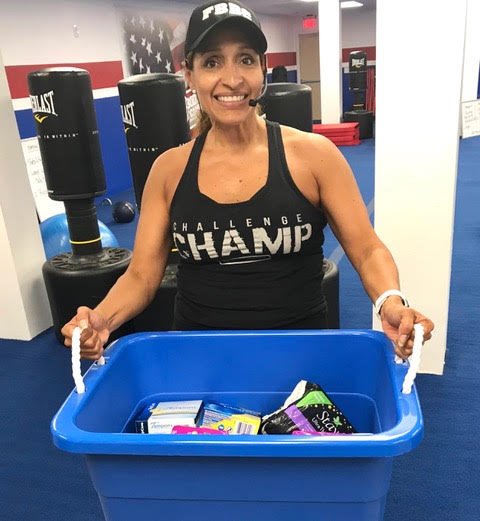Rev. Jenny Smith Walz gave her Thanksgiving Reflection for 2018 at the Princeton Community Thanksgiving Service held on November 22, 2018.
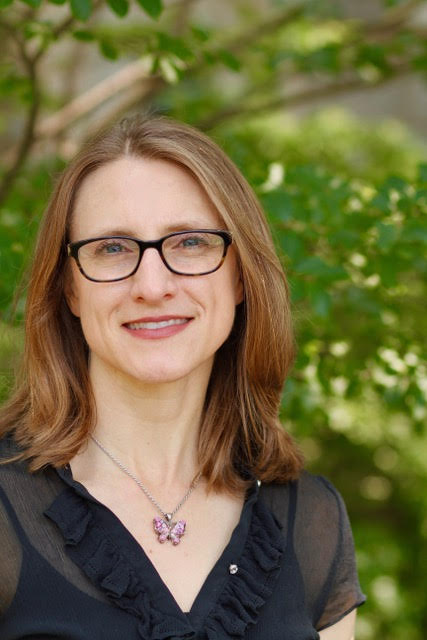
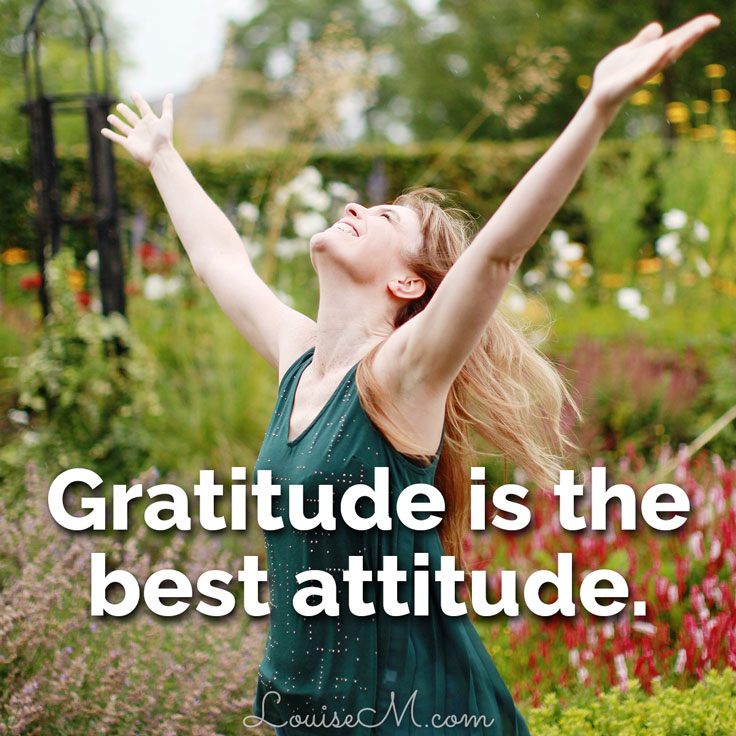
We know that practicing gratitude is beneficial to our health and well-being. Well documented:
● Better physical health
● Better mental health
● Less anger, more empathy
● Better sleep
● Better self-esteem
● Better emotional and mental resilience (deal with stress and recover from trauma)
● Better and more relationships
I believe there’s far more to gratitude than even this. Something beyond benefits to our own individual minds, hearts, and bodies. Something that moves us corporately, communally, into a different realm, a different way of being and of being together. Something that is even world changing.
I think of images of gratitude from my tradition. They are full of song and dance. Running and joy. Eating and sharing. Freedom and transformation.
● I see Miriam and all of the Hebrew women dancing and singing with timbrels on the other side of sea after leaving Egypt and Pharaoh and slavery behind.
● I hear the song of Moses after the sea closes behind him, both horse and driver having been hurled into the sea, in awe over this exodus God has accomplished.
● I see the unnamed Samaritan woman at the well leaving her water jar behind, running to the others in her village telling them how she has met one who has seen and knows her and LOVES her with compassion and hope and healing she’s never before known.
● I see Peter jumping out of a boat on the sea of Galilee after the risen Christ has appeared to him and the other disciples. After a miserable night of fishing, catching nothing, the risen Christ provides an abundant catch and then invites them to eat with him on the shore. Peter doesn’t wait for the boat to reach shore, he jumps off and swims, eager to greet his teacher.
● I see the early Christian community sharing all they have, eating together, caring for one another because God’s grace was so powerfully at work in them all that there were no needy persons among them, adjusting their whole structure and practice to care for the widows when it came to be known they weren’t getting enough to eat.
See, when gratitude is at work it changes not just our minds and hearts and bodies. It changes our whole society, our whole communal life together. When we practice gratitude, we are also living in the freedom and joy and abundant life of God’s realm.

There are things that compete, however, for that same place in our hearts where gratitude dwells. One of the key competitors for the attention of our hearts is something none of us are immune to: consumerism. If your mailbox and inbox are anything like mine, those retailers we have relationships with have been gearing us up for the holiday shopping season for several weeks now. Today, I opened a Thanksgiving message from a Christian mom-blogger, and inside, to my dismay, were tips on saving even more money on Black Friday and throughout the season, and in a way that actually earned her MORE money.
Friends we are so immersed in consumer culture, we hardly even know how deep in it we are. We have financial stake in it ourselves as our companies work to end the year as far ahead as possible, as we hope for the big bonuses. We have been shaped such that wish lists for Christmas are normal. And our wants are fed like starving dogs. And the messages all around tell us that we are lacking, our children need more, our households are incomplete, and our lives would be better, easier, free-er, more comfortable, more satiated if only we bought, had, acquired more, more, more. We are sure that we are not enough, and buying more will help solve this spiritual trouble. And not only this, but we are serving our country by spending, by growing the economy.
But this, friends, runs counter to the heart of each of our faiths, each of our deeper spiritual wisdom and knowledge. God did not make us consumers. God made us receivers and givers. God made us dependent on God and one another, despite all of our behavior to the contrary.
It’s gratitude, however, that deep gratitude that causes us to dance and sing. That causes us to run and jump out of boats. That causes us to eat and share and be generous and compassionate with one another. This kind of gratitude, it is powerful stuff. When practiced whole-heartedly, consistently, persistently, this kind of gratitude shatters the whole illusion that our consumer culture holds before our eyes and our appetites. And behind it reveals true freedom and joy – freedom from fear, from scarcity, from captivity, from envy, and greed, from avarice and illusion.
May we each discover this kind of gratitude today and the source of it as well.
Morris West encourages us as well. He says, “At a certain age our lives simplify and we need have only three phrases left in our spiritual vocabulary: Thank you! Thank you! Thank you!”
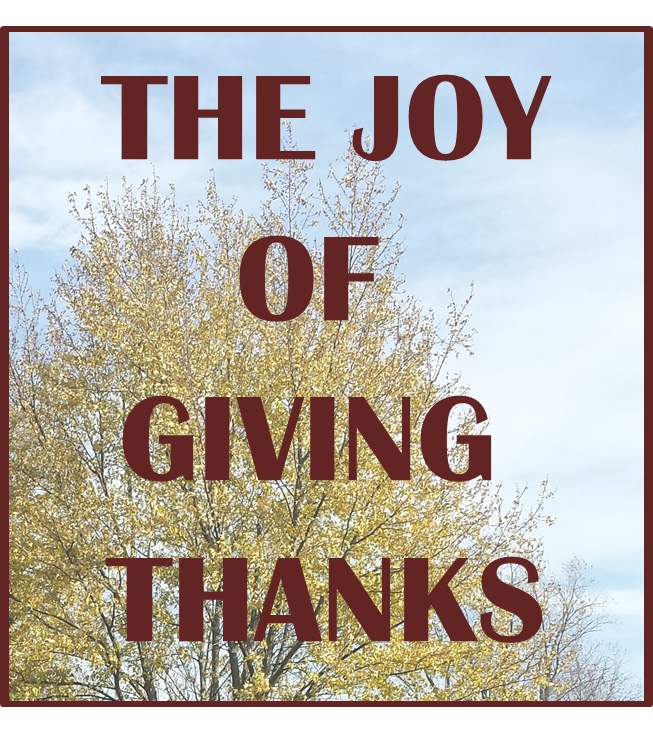
May we sing songs of doxology and praise. May we dance with joy and abundance. May we run toward the source of life and the giver of every good gift. May we share generously with one another and in doing so proclaim “Thank you! Thank you! Thank you!” to the God who gives us all we ever needed.
May it be so today and in all the days to come.
Amen.

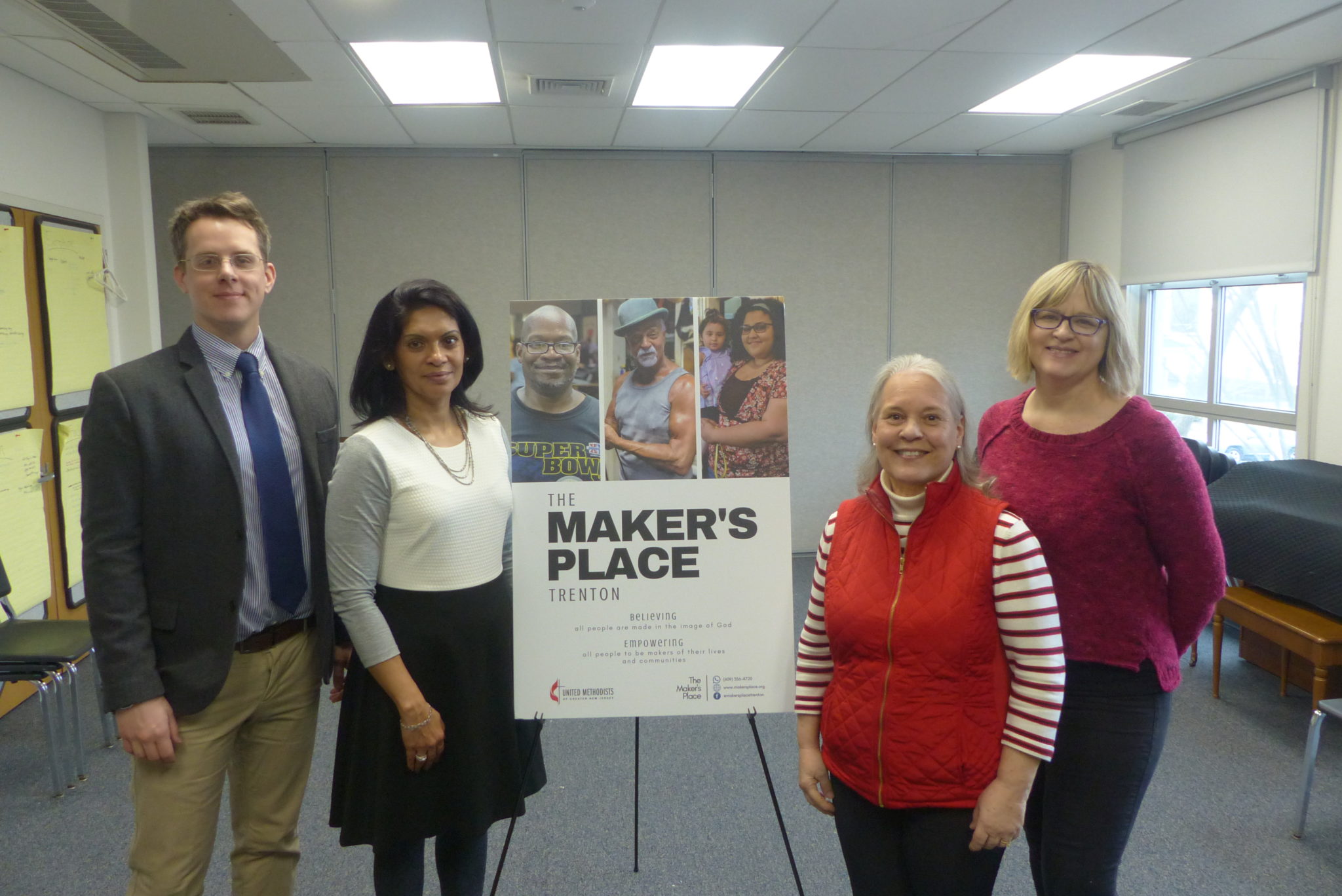




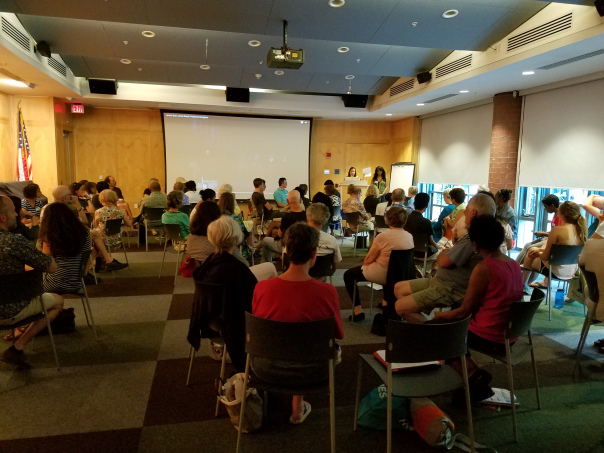
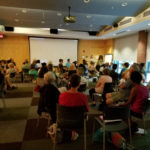
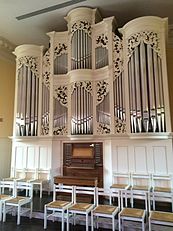
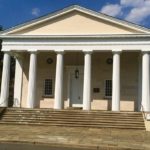 Worship in Miller Chapel is from 11:30 am-12:00 pm, followed by Lunch, Presentation, & Conversation from 12-1:30 pm. Select lunch ($10) in the Mackay Dining Hall, and then come to the the Main Lounge. Future Gatherings:
Worship in Miller Chapel is from 11:30 am-12:00 pm, followed by Lunch, Presentation, & Conversation from 12-1:30 pm. Select lunch ($10) in the Mackay Dining Hall, and then come to the the Main Lounge. Future Gatherings:
